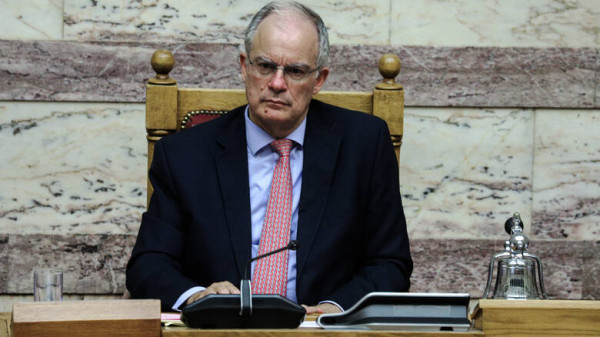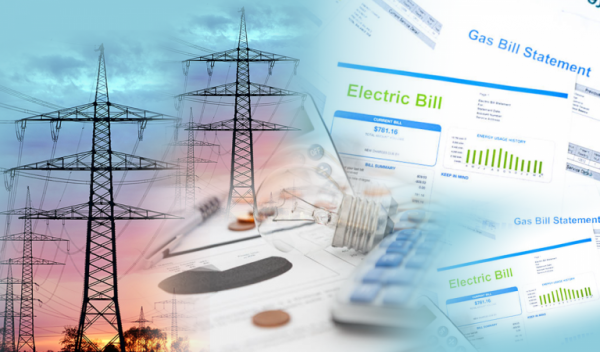
Swiss Bank UBS foresees growth of 2.5% in 2023, 1.8% higher than the average estimate of analysts (Consensus) and 3.2% in 2024 higher by 1.1% compared to the Consensus forecastfor the Greek economy. UBS even upgraded its estimate for the 2022 GDP growth rate to 6.4% from 5.7% previously.
At the same time, however, the forecasts for the global economy are not good, as the group of economists and strategic analysts of the Swiss bank (Arend Kapteyn, Bhanu Baweja, Jonathan Pingle, Keith Parker, Tao Wang, Michael Cloherty, Reinhard Cluse, James Malcolm , Rafael De, La Fuente, Manik Narain, Alexandre de Azara, Matthew Mish, CFA, Gyorgy Kovacs, Rohan Khanna), presenting the outlook for the next two years to the question of whether the world is heading for a recession, answered that “in practice, yes, as 13 out of 32 major economies are expected to contract for at least two quarters by the end of 2023, including the US economy.
Global GDP growth in 2023 will also be 2.1%, well below the long-term trend (around 3.5%) and the 8th lowest performance since the late 1960s and worst since 1993; if the periods of the pandemic and the global financial crisis are excluded.

It should be noted that especially for Greece, where inflation is expected to decline to 3.8% in 2023 from 10.2% in 2022, and to 2.2% in 2024, special reference is made to the events of the new year and the upcoming Greek elections which should take place by July 2023 at the latest. Based on the polls, six parties are expected to enter Parliament, but as none will have the required majority to form a government, a repeat election will be held with the return of the 50-seat bonus, with polls showing New Democracy gathering 36-38% of votes, against 26%-28% of SYRIZA and 12%-13% of PASOK.
As New Democracy has pushed for the absorption of the Recovery Fund funds, any changes in the government could also lead to changes in the priorities for the distribution of this available funding, which could affect the speed of the absorption, note the analysts, in a year when the country aims for a primary surplus of 0.7% of GDP, from a deficit of 1.7% of GDP this year.
Strong growth and very negative real interest rates have so far limited further debt growth for most countries, with Greece, the Philippines, Japan and Italy, however, facing the severest fiscal adjustment.
Latest News

Fraport Greece Posts Record Numbers in 2024
In December 2024, the 14 airports posted impressive numbers in passenger traffic, welcoming a total of 805,056 visitors

Greek Economic Sentiment Steady in Dec 2024
The trade deficit amounted to 4.6 billion euros, up by 340 million euros from the same period last year.

UBS Positive Outlook on Greece, Sees Moody’s Upgrade
Moody's remains the only one of the three major credit rating agencies that still rates Greece at Ba1, one notch below investment grade

Revolut Launches Commission-Free ETF Investment Programs in Greece
According to a survey conducted by Dynata on behalf of Revolut in Greece, 44% of investors said that low and transparent fees are the most important factors when choosing an investment provider.

Greece Falls Far Behind EU Recycling Rate Targets
Greece joins a long list of EU countries that will miss 5 key 'green' targets in 2025, including municipal and packaging recycling rates.

Greece Votes on Bill to Boost Sustainable Tourism
The bill, introduced by Greece's Ministry of Tourism, aims to strengthen the country's position as a global tourism leader by advancing sustainable tourism practices.

HCMC: Approval of Prospectus for the IPO of new shares of Alter Ego
The Group includes the highest rated, in terms of viewership, television channel in Greece, Mega, as well as the emblematic news media “To Vima”, “Ta Nea” and “Oikonomikos Tachydromos”.

Greece to Tighten Golden Visa Requirements: Handelsblatt
In its analysis, the German media outlet said investments can no longer be split across multiple properties

PM Mitsotakis Nominates Tasoulas as Next President of Greece
PM Mitsotakis proposes Kostas Tasoulas, current Parliament President, as Greece’s next President.

RES: Large Companies Buying PPAs in Greece
Power Purchase Agreements (PPAs) are long-term contracts between renewable energy producers and large corporations seeking to secure electricity at stable prices in a sustainable manner.














![Τουρισμός: Γερμανία, Βρετανία και Γαλλία «ψηφίζουν» Ελλάδα το 2025 [πίνακες]](https://www.ot.gr/wp-content/uploads/2025/01/tourismos-90x90.jpg)
![Αεροδρόμια: «Πέταξε» η επιβατική κίνηση το 2024 – Ταξίδεψαν 12 εκατ. επιβάτες [πίνακες]](https://www.ot.gr/wp-content/uploads/2022/05/airplani-90x90.jpg)

![Περιφερειακά αεροδρόμια: Πάνω από 36 εκατ. επιβάτες το 2024 [γράφημα]](https://www.ot.gr/wp-content/uploads/2024/12/aerodromia-90x90.jpg)






















![Ταμείο Ανάκαμψης: Τα 8+8 έργα που θα «τρέξουν» μέσα στο 2025 [γραφήματα]](https://www.ot.gr/wp-content/uploads/2022/03/tameio-anakampsis-768x412-1-600x322.jpg)

 Αριθμός Πιστοποίησης Μ.Η.Τ.232433
Αριθμός Πιστοποίησης Μ.Η.Τ.232433